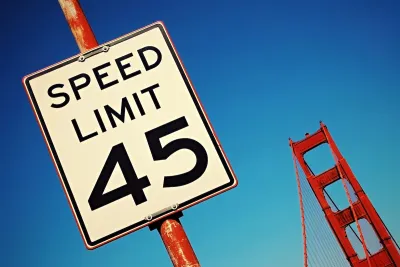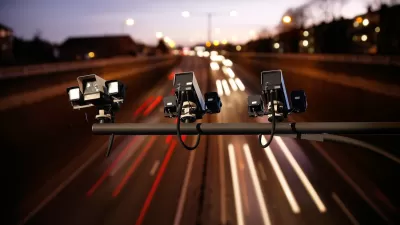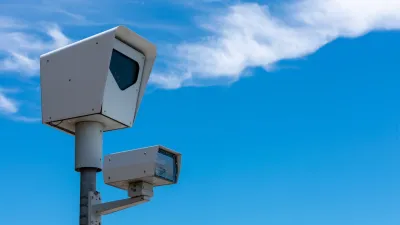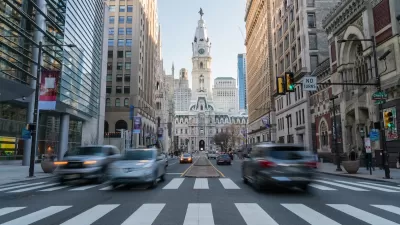The city is the first in the state to use automated traffic enforcement to reduce speeding and traffic deaths.

Late last week, San Francisco turned on the first 12 of its 33 speed cameras as part of an effort to limit traffic deaths in the city, which reached a peak of 41 last year.
According to an article for KQED by Matthew Green and Dan Brekke, “Installed in high-injury corridors where speeding is common, the cameras will automatically snap photos of the rear license plates of motorists traveling 11 mph or more over the posted speed limit.”
The cameras will issue no-fee warnings for the first 60 days. Citations of up to $500 will be issued starting in May. “San Francisco is the first city in California to install automated speed-enforcement cameras, long an aspiration of street safety advocates frustrated by the city’s lack of progress in reaching its long-term goal of eliminating traffic deaths and serious injuries.”
Over 300 U.S. cities use automated traffic enforcement cameras. A recent California law allows officials to install cameras in San Francisco, Oakland, San José, Los Angeles, Long Beach, and Glendale.
FULL STORY: SF Speed Cameras, First in the State, Turn on Today. Here’s Where They Are

Planetizen Federal Action Tracker
A weekly monitor of how Trump’s orders and actions are impacting planners and planning in America.

Maui's Vacation Rental Debate Turns Ugly
Verbal attacks, misinformation campaigns and fistfights plague a high-stakes debate to convert thousands of vacation rentals into long-term housing.

Restaurant Patios Were a Pandemic Win — Why Were They so Hard to Keep?
Social distancing requirements and changes in travel patterns prompted cities to pilot new uses for street and sidewalk space. Then it got complicated.

In California Battle of Housing vs. Environment, Housing Just Won
A new state law significantly limits the power of CEQA, an environmental review law that served as a powerful tool for blocking new development.

Boulder Eliminates Parking Minimums Citywide
Officials estimate the cost of building a single underground parking space at up to $100,000.

Orange County, Florida Adopts Largest US “Sprawl Repair” Code
The ‘Orange Code’ seeks to rectify decades of sprawl-inducing, car-oriented development.
Urban Design for Planners 1: Software Tools
This six-course series explores essential urban design concepts using open source software and equips planners with the tools they need to participate fully in the urban design process.
Planning for Universal Design
Learn the tools for implementing Universal Design in planning regulations.
Heyer Gruel & Associates PA
JM Goldson LLC
Custer County Colorado
City of Camden Redevelopment Agency
City of Astoria
Transportation Research & Education Center (TREC) at Portland State University
Jefferson Parish Government
Camden Redevelopment Agency
City of Claremont





























